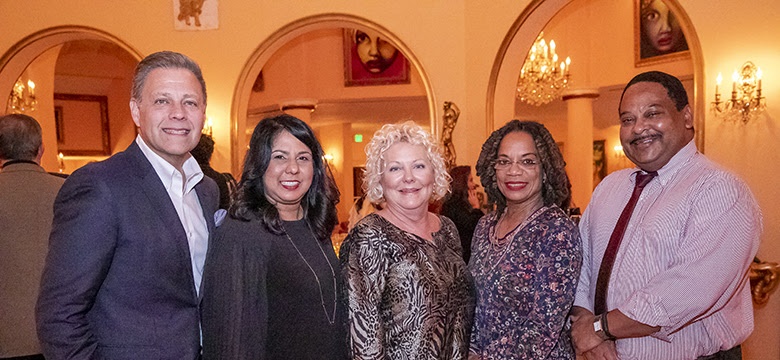
Remarks by the Minister of Health, the Hon. Kim Wilson, JP, MP, at the screening of the award-winning film Lady Ganga: Nilza’s Story. Lady Ganga: Nilza’s Story is a free 18-minute short film about how two women’s lives — a world apart — intersected because of HPV, the virus that is linked to cervical cancer. Nilza is a mother who lives in the mountains of India. Michele Frazier Baldwin was a mother of three from the U.S. who died as a result of cervical cancer.
Good evening.
It is a pleasure to be here for the screening of this powerful and inspiring story.
As part of Cervical Cancer Awareness Month I am always pleased to participate in events and activities to raise awareness of, and to help prevent cervical cancer.
Tonight, we are indeed fortunate to have the opportunity to see this amazing documentary and hear Michele Baldwin's story. She is an inspiration and her story will continue to save lives.
In preparing my remarks, I read a quote online about this film – it said, “Baldwin wanted people to understand exactly what it is to die of cervical cancer, which, according to the Centers for Disease Control and Prevention, is highly preventable and almost always caused by the human papillomavirus (HPV), for which there are vaccines.”
Every year in January, the Ministry of Health, our partners and stakeholders, turn our focus to cervical cancer. This disease kills 250,000 women a year worldwide. So it is appropriate that we take advantage of every opportunity we have to spread the word – it’s preventable and there is a vaccine available.
Raising awareness about the importance of screening, early detection and early prevention is key to early treatment and events such as this is one of the best ways to arm ourselves against this cancer.
Just as awareness and education are a priority, access to health care is very important to me and my Ministry. We are fortunate in Bermuda to have adequate access to screening for many illnesses and diseases and that includes cervical cancer.
By having regular Pap tests, Cervical cancer can often be detected early, and sometimes even prevented entirely. If detected early, cervical cancer is one of the most successfully treatable cancers.
Our data has shown that locally we are screened regularly in order to detect any changes in the cervical cells and fortunately this has led to some encouraging news for the women in Bermuda.
In Bermuda, 9 out of 10 adult women have properly armed themselves by having had at least one recent Pap test. This is very commendable for both women and their physicians.
Our preventive measures are clearly paying off because Bermuda has a lower mortality rate from cervical cancer than the OECD average. Early detection and treatment have contributed to fewer women in Bermuda dying of cervical cancer than the average of all OECD countries.
The latest year for which we have statistics is 2015. These statistics confirm that of new cancer diagnoses, only 4% were cervical cancer. Compared to 31% of new cancers diagnosed relate to breast cancer.
In fact, from 2015 to 2018, Bermuda recorded no deaths due to cervical cancer.
It would be wonderful if in the near future, no woman was diagnosed with cervical cancer ever again. We must stay focused on this goal and we must spread the word about cervical cancer, the absolute need to get tested regularly and the benefits of being vaccinated. I encourage each of you, to encourage each other; your families, your friends and your colleagues to get vaccinated.
I remain confident that by being diligent, caring for ourselves and each other and with the vaccine that can prevent the most common strains of HPV, the virus that is linked to cervical cancer, we can remain ahead of this cancer.
The vaccination against several of the most common strains of HPV is available for free, at Government Health Centres. It is available to any young person, male or female, between the ages of 11 and 18. It is also available through private physicians’ offices.
This is an area that I believe we need to focus more of our attention and efforts. In 2017 only 18% of current 11 and 12 year old boys and girls have been vaccinated, even though this is now part of the recommended childhood immunisation schedule . . . it is best to vaccinate before sexual activity starts.
I do want to stress that the wellbeing of the people in our community is at the heart of my Ministry. I am encouraged that you are here tonight and contributing to making us ‘healthy people in healthy communities’.
Let’s continue Michele’s mission to spread awareness and educate everyone about cervical cancer so that one day, hopefully soon, there are no more deaths as a result of this disease.
